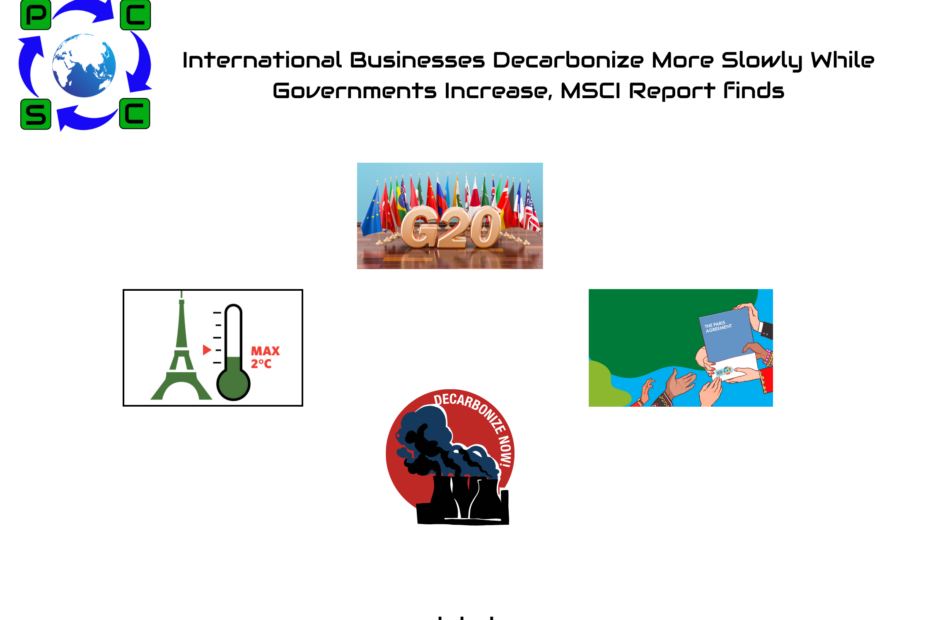
The most recent MSCI Net-Zero Tracker shows that while the pace of decarbonization of their home countries is expected to accelerate, that of global listed companies is predicted to slow this decade. The slowing decarbonization rate from companies suggests that further results in the lead up to the 1.5°C deadline will be harder to achieve.
Listed companies in nine of the G20 nations examined in the report will decarbonize at a slower rate between 2022 and 2030 than the five years after the Paris Agreement.
On this trajectory, listed companies are set to exceed the carbon emissions limit that would keep the global temperature rise below 1.5°C by April 2026, three months earlier than projected in July 2023. Half of all companies (55%) are on track to keep warming below 2°C and 22% are aligned with a 1.5°C temperature rise (an increase of 12 percentage points from two years ago).
Public companies are now projected to emit 11% more direct (Scope 1) greenhouse gas emissions this year than in 2022. This would need to instead fall by 43% this decade to limit the temperature rise to 1.5°C.
Looking ahead, the pace of decarbonization of many countries is set to overtake that of the listed companies based within them. Governments in 13 of the G20 nations are projected to reduce domestic greenhouse gas emissions from agriculture, energy and industrial activity by an average – 4.5% each year between 2022 and 2030, up from just -0.8% annually in the five years after the Paris Agreement.
There will likely be exceptions, however, with annual domestic emissions in India, Turkey and Indonesia expected to rise 3.6%, 1.2% and 0.8% respectively by 2030. In China, domestic emissions are expected to fall slightly each year to 2030 (-0.3%), but the greenhouse gases output of its listed companies are projected to continue to increase (+0.5%).








 Authorised IMDS & CDX Training & Consulting partner for
Authorised IMDS & CDX Training & Consulting partner for






